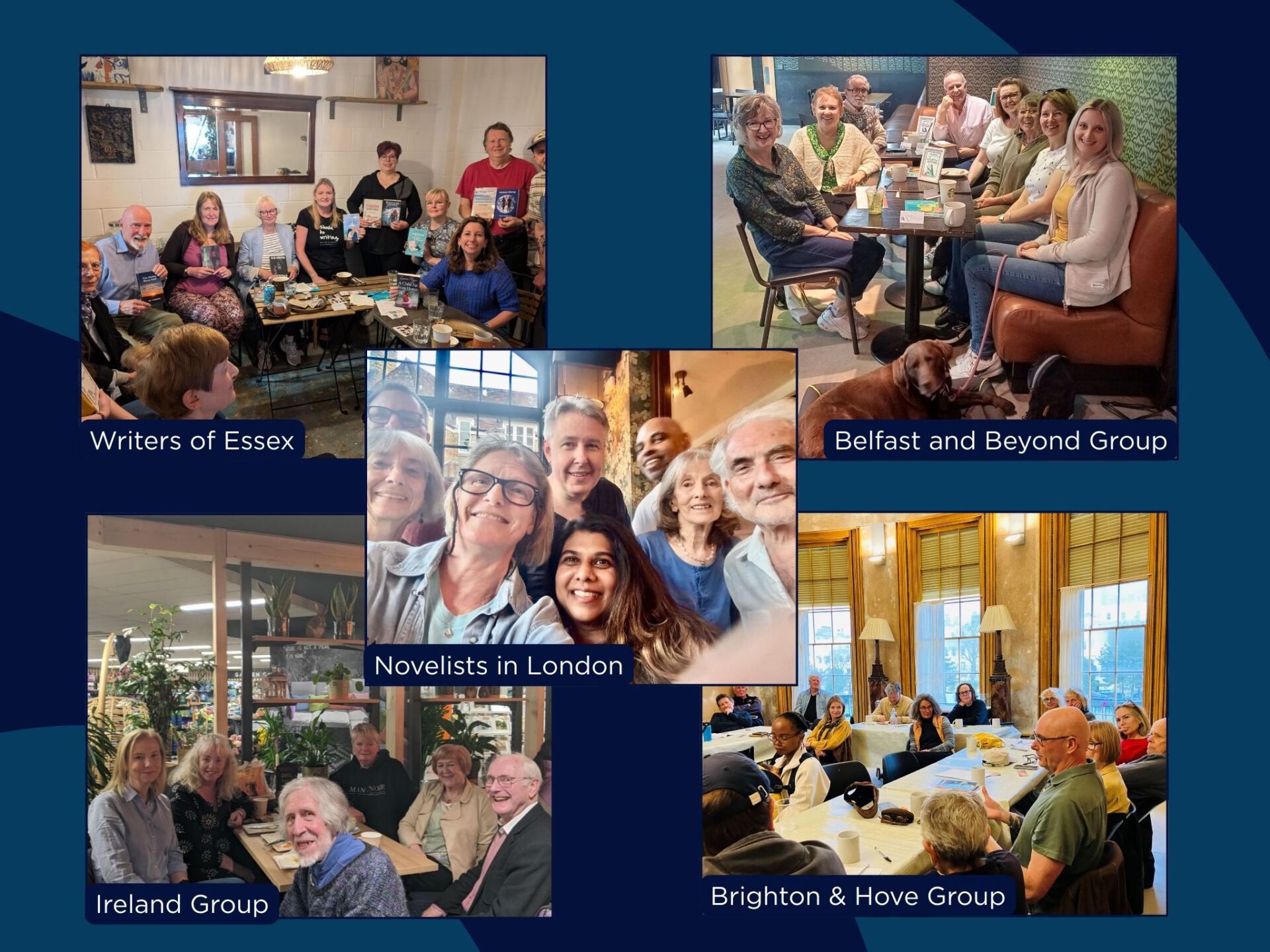Authors are telling us of scams in a number of areas, including:
- A very plausible individual or company has read your book(s), and they supply a load of detailed comments which seems to confirm as much, and they would love to undertake publicity and marketing, or to drum up readers or reviews for you. This does not happen in real life.
- A famous author apparently contacting you out of the blue because they love your book… and once dialogue has been established you will at some point of course be asked for money for some reason or another. Famous authors do not write to people they don’t know, out of the blue, like that. The true author can always be contacted via a homepage online or through their publisher so, if in doubt, check there.
- Invitations to in person industry-related events (for a very high price) e.g. the SoA’s AGM (which NB is online, not in person, and is free to all members).
How do they do it?
It seems that AI-enhanced search engines hunt down any email address listing which appears on an open site – this could be your own website or for instance a listing you have uploaded into a directory or, for instance, into the Public Profile section of the SoA site
AI-enhanced search engines also hunt down online reviews, book blurbs and directory listings which allow them to give the impression that the sender has read your work – when they have done no such thing.
What do they want?
Your money.
If you respond, at some point (often only after more seductive email chat) you will be asked for money. In return for smoke and mirrors.
Anyone can be taken in – these people are very persuasive
You need to be on your guard and cynical. Remember that if an offer, out of the blue, seems too good to be true, it is too good to be true. Always check the credentials of anyone contacting you unsolicited. In almost all the scam attempts we have seen recently, the scammer included no links to any website and indeed had no online presence at all.
The internet is teeming with companies offering services to authors – publishing, marketing, publicity, ghostwriting, agenting – the list goes on. It can be increasingly difficult to distinguish between legitimate offers and scams. In the last year, the SoA advisory team has seen a variety of misleading unsolicited offers and cold-calling, targeting all kinds of authors. You should always treat information sourced from the internet or from cold-call emails with caution.
The impact of falling for scams can be distressing and demoralising. Some authors report paying for services with little in return and finding that they cannot recoup payments, or granting rights that they cannot later revert. Others have found themselves disclosing bank details under fraudulent circumstances. Sadly, anyone can fall for scams – no author should feel foolish or ashamed if theyare misled. Many scams are highly sophisticated and designed to play on authors’ genuine needs and hopes. There are, however, measures that can be taken to protect your interests and wellbeing.
Protecting yourself
Remove your email address from online listings including your website, any directory or social media platform on which it appears, and your Public Profile on the SoA site. People can still contact you if you replace it with a ‘contact me via…’ link, and it will make things a bit more difficult for bots and catfishers to reach you.
If you are an established writer and scammers have pretended to be you, put a clear notice on your website (and that of your publisher and agent) that you never cold-call people even with fan-mail and if someone has received a communication of that sort seemingly from you, it is a scam.
Consider using resources, such as Writer Beware which publishes a very useful (though not exhaustive) List of Overseas Scams and The Authors Guild of America’s article on avoiding scams. You can also report phishing emails to the UK Government and find government guidance on Misleading Invoices here.
Check with the SoA. We are happy to examine offers that members receive and are (sadly) becoming adept at spotting scams. Reach out for help if you feel that you are being bullied into agreeing for services or bombarded by emails from a company.
Take your time before answering flattering emails or sharing your work. Scammers can use email addresses that look like a genuine publisher’s or agent’s address, so be aware that publishers, agents and producers are highly unlikely to make spontaneous offers or try to acquire rights in books that have not been submitted to them. Remember that reputable literary agents do not charge fees for reading or editing work or making submissions to publishers.
If the scammer claims to be or cites a genuine agent or publisher, report the matter to the real agent or publisher (most big publishers and agencies have a ‘report a scam’ link which can be searched for online).
Do not rely on glowing online reviews. Searching for a company name alone may generate results curated by the scammer’s paid advertisements and potentially paid-for reviews. Instead, search for ‘is it a scam?’ or ‘is it legit?’.
Never pay money unless you are clear about what you will receive in return. Don’t settle for vague promises and aspirational jargon, but only for specific undertakings.
Watch out for pressurizing sales tactics, ‘urgent’ deadlines and upselling (i.e. suggesting that you pay more for just one extra ‘benefit’). These can be signs of a scam.
Be wary of companies offering special, seemingly ‘official’ Amazon product and marketing services. Remember that legitimate Amazon websites and emails contain ‘amazon.co.uk’ or ‘amazon.co.uk/support’.
Always be careful before acting on emails or phone calls purporting to be from your bank, even if the caller ID that appears on your phone matches your bank name or number. Scammers can change the number that appears on your screen.
Only open a link or attachment included in an email if you are absolutely sure it is from a reliable source.
Publishers and agents can also fall prey to scams, so check royalty statements to ensure that they have the correct bank details. If you are expecting a payment from a publisher or agent (or an award/prizing-giving body) and it does not arrive in your account, chase as soon as possible.





